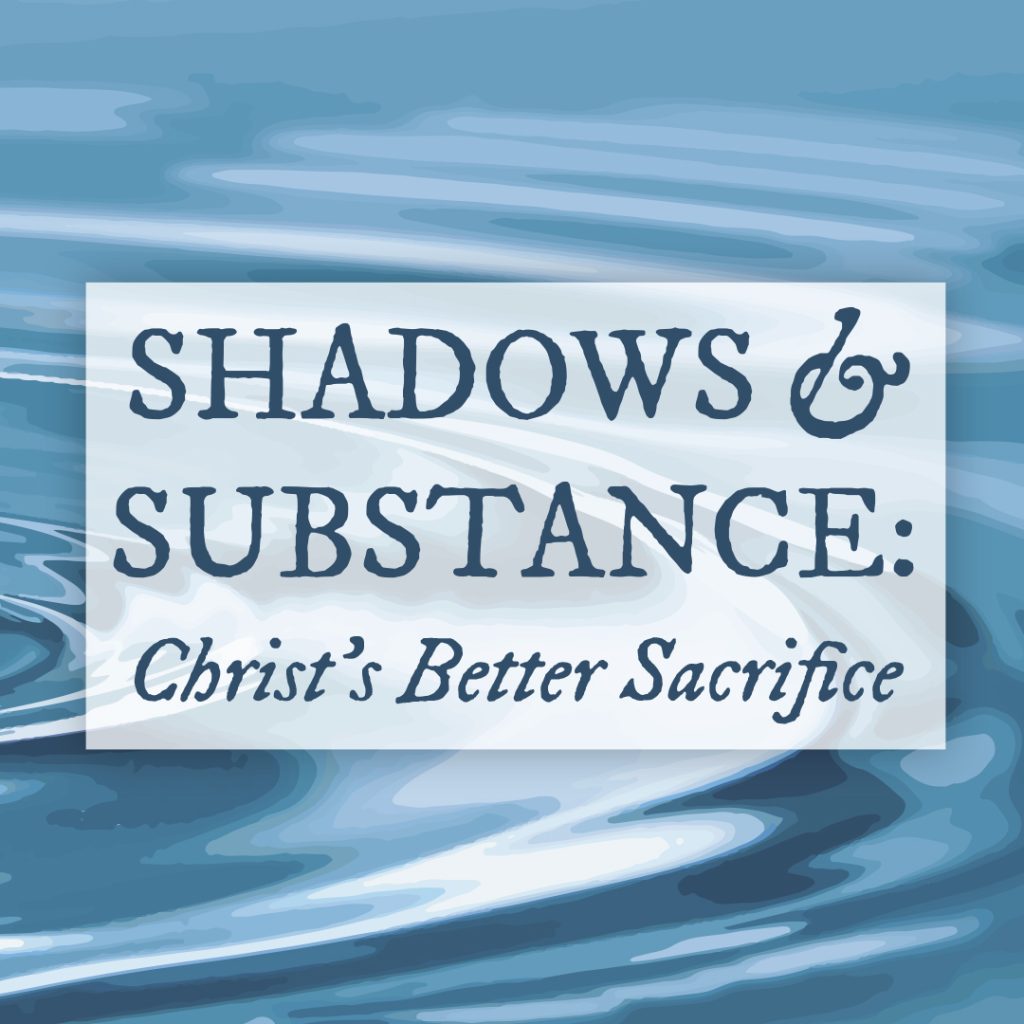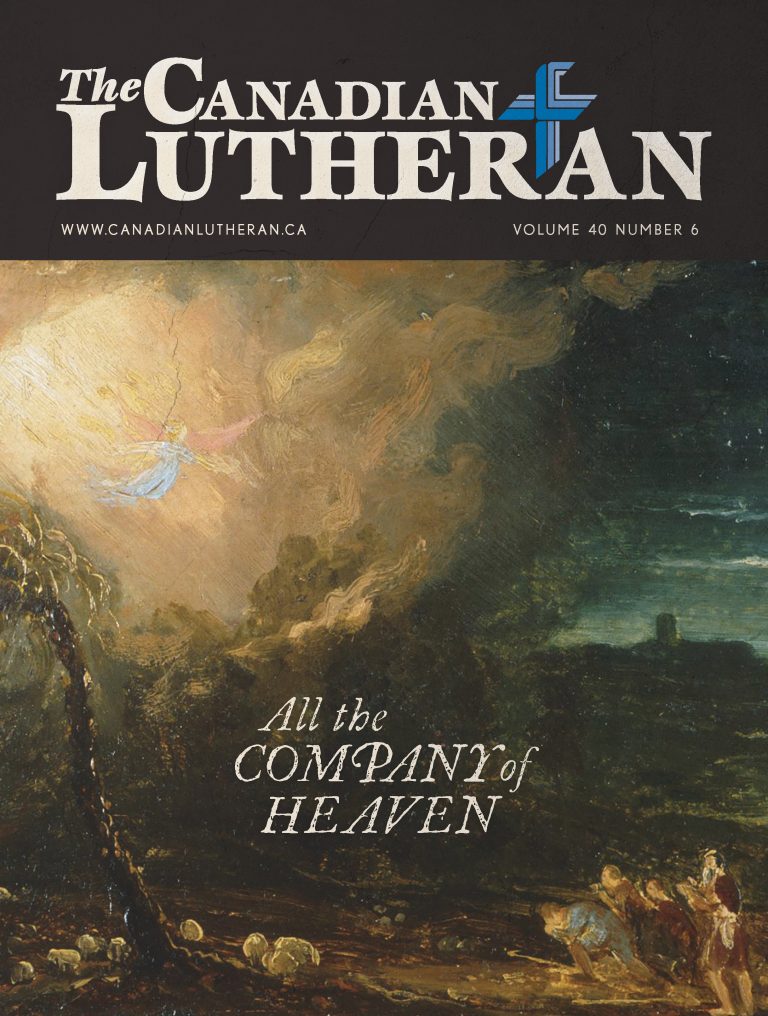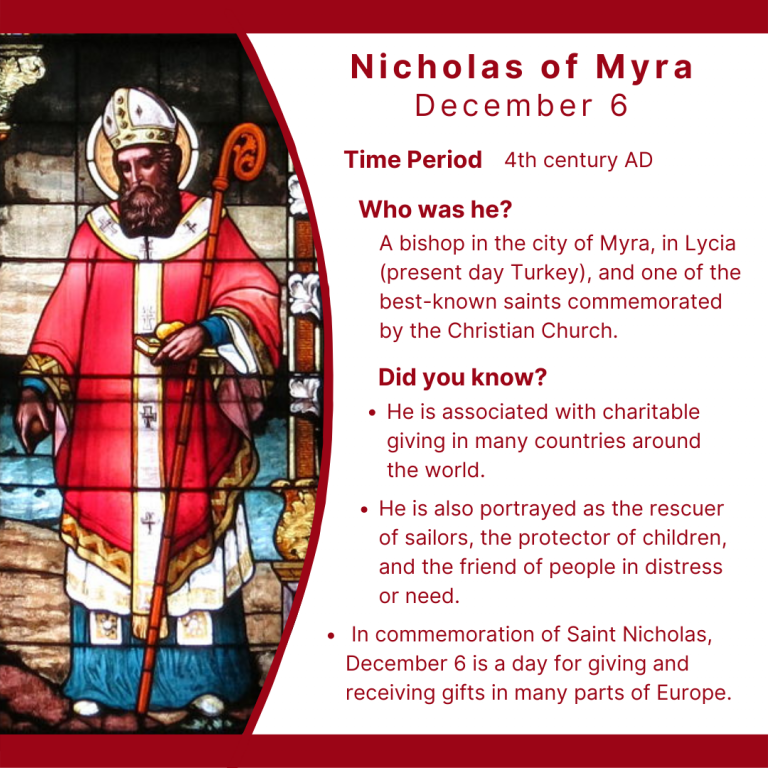Shadows and Substance: Christ’s Better Sacrifice
 by Thomas Winger
by Thomas Winger
Persecution was a vivid memory and now loomed again on the horizon. They had not yet suffered to the point of shedding blood (Hebrews 12:4), but they bore the scars of public ridicule, plundering of property, and imprisonment (Hebrews 10:32–34). The epistle to these “Hebrews” was likely recalling the expulsion of Jewish Christians from Rome under Emperor Claudius (49 A.D. – Acts 18:2). An even more deadly persecution was coming under Nero (64 A.D.). What should they do?
It seems that some of these ethnically Jewish Christians considered a radical move: publicly renounce Christ and hide in the legal protection enjoyed by Jews. When the danger had passed, they would simply reapply as catechumens, publicly repent, and return to the Christian fold. The unnamed author of Hebrews condemns this deliberate apostasy in no uncertain terms. Repentance and rebaptism is out of the question for such wilful sinners (Hebrews 6:1–6).
But he does more than just close the door on their plan. In elaborate detail he shows them that the new covenant in Jesus is superior in every way to what came before. Jesus, the very Word and Son of God, is far better than the messengers of the old covenant: ministering angels, prophets, even Moses himself. Jesus is a high priest who surpasses the Aaronic priesthood and its sacrifices. Once they had such a Jesus, how could they possibly go back?
While this particular form of apostasy no longer tempts us today, there are still false teachers who say our Christian faith is incomplete if we don’t observe the ritual laws of the Old Testament—like Sabbath observance, circumcision, or avoiding pork. The heart of Hebrews (chapters 8–10) is a potent antidote to this poisonous idea, as it unpacks the power and meaning of priesthood and sacrifice in the Tabernacle.
The key word is “better”. The problem isn’t that the old sacrifices were worthless. They were instituted by God for a divine purpose: to cleanse His people and make them holy so they could approach Him and live in His presence without being consumed by His glory (Hebrews 12:14). The various sacrifices of animals, grain, and wine brought forgiveness of sins, peace, and fellowship with God. So what was wrong with them?
Hebrews draws two answers from a key prophetic passage (Jeremiah 31:31–34). Firstly, the fault lies with the people, not the sacrifices. They broke and abandoned God’s covenant (Hebrews 8:9). They fell into formalism, fulfilling the Law outwardly by offering up goats and bulls, but without repentance and faith. Did they think God was just hungry (Psalm 50)? What God truly wanted from them was love and obedience, thanksgiving and praise, knowledge of His Word, and care for the poor. At times He expressed His exasperation by claiming (hyperbolically) that He never asked for their sacrifices (Micah 6:6–8; Hosea 6:6)! The problem was that they approached His altar with outward works, while their hearts remained far from Him (Isaiah 29:13).
But Hebrews goes one step farther than the prophets, drawing a surprising conclusion from Jeremiah’s promise of a “new” covenant. This implies there was something wrong with the old one. God Himself had found “fault” with the sacrifices (Hebrews 8:8). They had no power to change the people’s hard hearts (Hebrews 9:9). If a lamb or goat had to be offered every morning and evening, year after year, then its power must have been severely limited. Their blood couldn’t possibly take away sins. They were no more than a shadow of something better, still to come (Hebrews 10:1–4).
Christ’s cross stands in the middle of time like a stone thrown into a pond whose ripples spread in every direction. His powerful blood infused the Old Testament sacrifices with a strength they could never have had on their own, so that the saints of old were made holy by the blood of Christ still to come.
It came when Jesus, the high priest of the new covenant, offered a sacrifice that was superior in every way. His ministry carries better promises (Hebrews 8:6). He is able to change the mind of God’s people so they know His Word from the heart (Hebrews 8:10). He is able to change the mind of God so that He remembers their sins no more (Hebrews 8:12). All this Christ enacted by His once-and-for-all sacrifice on the cross. Then, carrying the powerful blood of God Himself, Jesus entered the holy of holies with finality, securing an eternal redemption and purifying our consciences completely (Hebrews 9:12-14). No more sacrifices would be needed, because the death of God had inaugurated a radically new covenant (Hebrews 9:15).
So when Hebrews calls the sacrifices of the old covenant “a shadow of the good things to come” (10:1), it means that we shouldn’t cling to them. A child who’s waiting for his father to return home may get excited when his shadow crosses the threshold. But once his father walks through the door, it’s him that he hugs. It would be absurd to fall to the floor grasping at the shadow! To return to the ways of the Old Testament would be equally absurd.
 That’s not to say that shadows are unimportant. A shadow not only tells you something’s coming; it also takes its shape from it and shows what it will be like. While the blood of goats had no power in itself to forgive sins, the blood of Christ to which it pointed certainly did. God forgave Israel’s sins through the blood of the sacrifices because of Christ’s sacrifice that was to come. Christ’s cross stands in the middle of time like a stone thrown into a pond whose ripples spread in every direction. His powerful blood infused the Old Testament sacrifices with a strength they could never have had on their own, so that the saints of old were made holy by the blood of Christ still to come.
That’s not to say that shadows are unimportant. A shadow not only tells you something’s coming; it also takes its shape from it and shows what it will be like. While the blood of goats had no power in itself to forgive sins, the blood of Christ to which it pointed certainly did. God forgave Israel’s sins through the blood of the sacrifices because of Christ’s sacrifice that was to come. Christ’s cross stands in the middle of time like a stone thrown into a pond whose ripples spread in every direction. His powerful blood infused the Old Testament sacrifices with a strength they could never have had on their own, so that the saints of old were made holy by the blood of Christ still to come.
Likewise, the shape of the sacrifices showed the Israelites what kind of Messiah was coming. Morning and evening a lamb was sacrificed on the altar (Exodus 29:39), foreshadowing the Lamb of God who takes away the sins of the world (John 1:29). Together with the lamb the priests offered on the altar’s hot coals flour mixed with oil and poured out wine (Exodus 29:40). They made bread with the rest of the grain offering and ate it next to the altar (Leviticus 6:16). Each Sabbath the priests set out twelve loaves of “the bread of the presence” as an offering, and the next week they ate the bread as a fellowship meal in God’s presence (Leviticus 24:9). At Passover these elements came together into a meal in which every Israelite participated.
On the night when He was betrayed, during that Passover meal, Jesus took bread and wine and instituted the New Testament. The shadow had given way to the coming One. The sacrifices of the old covenant would shortly reach their fulfilment in His death on the cross. And He would offer the fruits of that sacrifice—His flesh and blood—as a banquet for His people that surpassed every feast of the old covenant. The letter to the Hebrews culminates with an urgent appeal to join in that banquet: “let us draw near with a true heart in full assurance of faith” (Hebrews 10:22), words that are quoted in the entrance rite of our divine service (LSB 184). At this weekly banquet we enter something greater than even the glorious Temple of old, a joining together of heaven and earth around the altar:
You have come to Mount Zion and to the city of the living God, the heavenly Jerusalem, and to innumerable angels in festal gathering, and to the assembly of the firstborn who are enrolled in heaven, and to God, the judge of all, and to the spirits of the righteous made perfect, and to Jesus, the mediator of a new covenant, and to the sprinkled blood that speaks a better word than the blood of Abel. | Hebrews 12:22-24
———————
Rev. Dr. Thomas M. Winger is president of Concordia Lutheran Theological Seminary in St. Catharines, Ontario.



